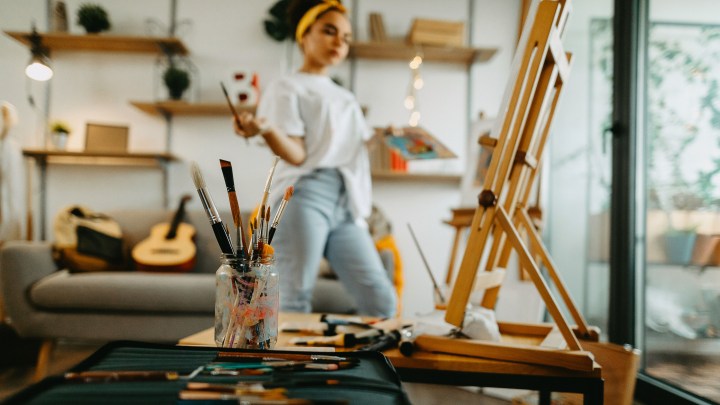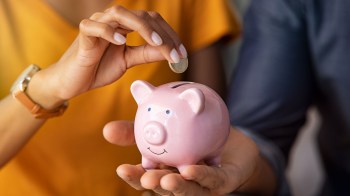
Programs pilot guaranteed income for artists

It was the beginning of the pandemic and McKinley West was frustrated. His DJ jobs had dried up overnight. So Mickey Breeze — that’s his DJ name — did the only thing he could think of: he wrote a song about it, “Munny Hungee.”
“Literally all of these problems that you have with family, with cars, with mental health, with content can, in some shape, way or form, be solved with money, and I hate when people demonize it,” he said.
West had sold off thousands of dollars’ worth of speakers, DJ controllers and synthesizers to pay his bills. Then, just when he thought he’d hit the bottom, he got an email from Springboard for the Arts, a nonprofit based in Minnesota, saying he’d been selected for its Guaranteed Income Pilot. He’d receive $500 a month for 18 months, no strings attached.
“I’ve literally been using it to restart, or kickstart, my career from a bit of a dead zone,” he said.
West bought back his DJ equipment. He put some money into maintaining his SUV, which he uses to haul gear to events, and used some of the stipend to pay for basics like groceries.
Universal basic income programs give people cash to spend however they want. There are guaranteed income programs that focus on disadvantaged populations, like formerly incarcerated people or low-income mothers.
Now, organizations in New York, San Francisco and St. Paul are piloting these types of programs for artists.
The programs offering guaranteed income can be controversial. Recipients aren’t necessarily required to use the money in a specific way; artists like West don’t even have to put it toward making art.
“No, people aren’t required to sort of continue to demonstrate that they are producing a particular art piece or that there’s no juried competition to see who is producing the better public art installation,” said Amy Castro, who co-directs the Center for Guaranteed Income Research at the University of Pennsylvania, which is partnering with the Springboard pilot in Minnesota.
To qualify for the program in Minnesota, artists had to show they’d been adversely affected by the pandemic. Artists of color were prioritized, and the remaining recipients were selected at random. Castro said that’s the whole point — to not decide whether an artist is good or bad, but to give them an opportunity to grow.
“The existing art world functions not on trying to create space and equality around who gets to produce, who gets access to funding, who gets gallery space. And what these projects are offering is something completely different,” she said.
But — like any experiment — the private foundations funding these programs will want to understand the results. Which means the programs have to measure some kind of outcome.
“Does it help them produce more work, to participate in more shows? Does it help them get the next grant, get the next thing?” said Sarah Calderon, executive director of Creatives Rebuild New York, which has two income pilots, a guaranteed income program and an employment program that gives artists a $65,000 salary per year for two years.
Playwright Jesse Jae Hoon was chosen to work on new productions and community events for Asian Americans with Ma-Yi Theater Company in New York City. It means no more 3 a.m. writing sessions to work around his daytime admin job.
“Which is most of the valuable things as an artist is just having the time to really flesh out your process and your creative work,” he said.
He’s also really looking forward to the health insurance benefit. “The first thought I had was, ‘Oh my God, I can get new glasses, I can get a teeth cleaning.”
He thinks that will give him the mental space he needs to make better work.
There’s a lot happening in the world. Through it all, Marketplace is here for you.
You rely on Marketplace to break down the world’s events and tell you how it affects you in a fact-based, approachable way. We rely on your financial support to keep making that possible.
Your donation today powers the independent journalism that you rely on. For just $5/month, you can help sustain Marketplace so we can keep reporting on the things that matter to you.

















